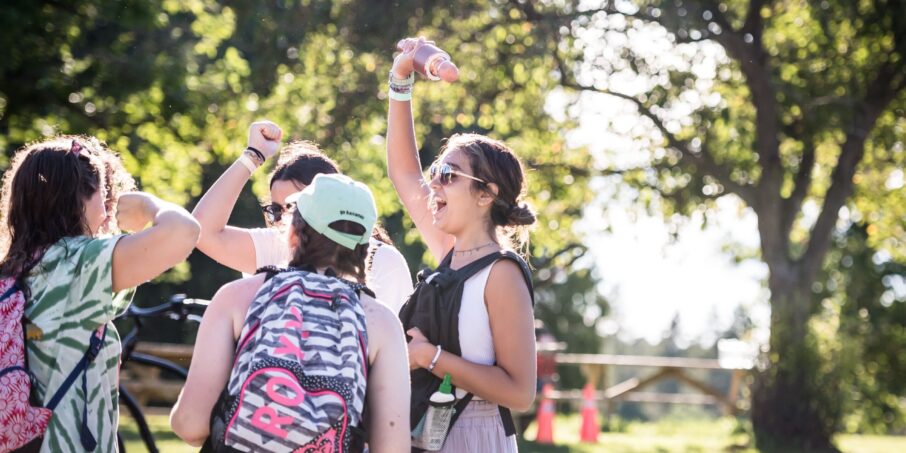
The Spirit of Giving: Camp Klotty Pine’s Leader-in-Training Program
When you have been coming to Camp every summer since you were eight years old, there comes a point when you have mastered the activities, sang all the songs, made friends, gained self-confidence, got your name on the big stick and can infuse yourself independently. So, what’s next?
The shift from camper to Leader-in-Training (LIT) is when camp becomes more about “we” than “me”. The LIT program equips our young leaders with the skills and opportunity to make a lasting impact on their camp community. LITs play a crucial role in passing down the camp traditions and magic to our campers as their counselors once did for them.
With this change of perspective, camp becomes something completely new and serves a different purpose than it once did. “Although a challenging transition at first, LITs often find their new role extremely rewarding.” says LIT Program Director, Kailee Frederick. “There is nothing more fulfilling than seeing a camper conquer a fear, break out of their shell, gain more confidence in themselves and leave camp better than they came. LITs help campers fully embrace the experience and spirit of camp.”

Leaders-in-Training (LITs) are former campers, ages 15-18, who wish to step into future camp leadership roles. This three-year comprehensive program focuses on skill building, leadership development and service learning as ways to not only build competent counselors, but ambitious leaders for the future.
These budding leaders are trained to work alongside their cabin counselors to create a magical camp experience for Camp Klotty Pine’s campers. They play a hands-on role in behavior management, camp programming, safety, and most importantly fun.
Before the start of the camp session, LITs attend a training retreat where they spend a weekend learning and developing fundamental leadership skills. LITs also participate in a staff training day along with our host site’s, Camp Turning Rivers, camp staff. Here, they get to meet with their counseling teams to plan and prepare for their campers’ arrival, activities and programming throughout the week.

Those who graduate after three years in the LIT program often return to camp as cabin counselors or in other camp leadership roles. Our goal is to keep the staff involved in the camp community for summers to come. Thus, creating a virtuous cycle, where each person has the potential to impact and inspire the next generation to keep camp and its traditions thriving. These passionate individuals are truly at the heart of every camp.
“When you’re in a position to have gotten so much, the gift at this point is giving back.” –Paul Stanley
